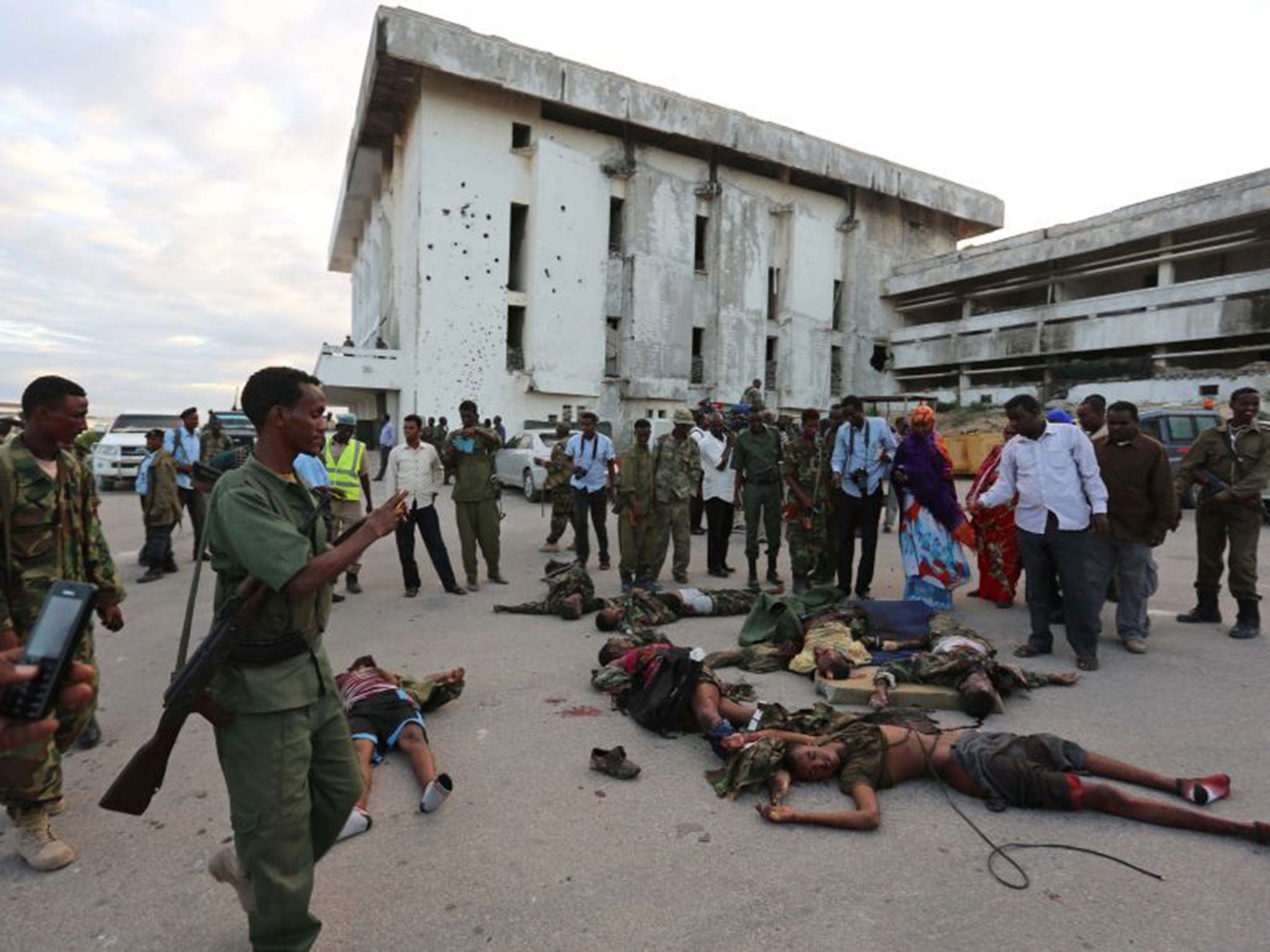Death reigns in Somalia as displaced struggle to rebuild lives

Your support helps us to tell the story
From reproductive rights to climate change to Big Tech, The Independent is on the ground when the story is developing. Whether it's investigating the financials of Elon Musk's pro-Trump PAC or producing our latest documentary, 'The A Word', which shines a light on the American women fighting for reproductive rights, we know how important it is to parse out the facts from the messaging.
At such a critical moment in US history, we need reporters on the ground. Your donation allows us to keep sending journalists to speak to both sides of the story.
The Independent is trusted by Americans across the entire political spectrum. And unlike many other quality news outlets, we choose not to lock Americans out of our reporting and analysis with paywalls. We believe quality journalism should be available to everyone, paid for by those who can afford it.
Your support makes all the difference.Mogadishu remains a city in chaos, haunted by its tortured past, and fearful of its uncertain future. Every street bears the scars of war, with whole districts still no more than rubble, and amid this rubble, sleep the multitude of homeless, hiding from the oppressive sun, cowering with nowhere to go.
The shell of the once beautiful cathedral plays home to alcoholics, despite the threat of 60 public lashes, and alongside them shanty towns fill the once magnificent Italian districts. The remnants of animal carcasses lie covered in flies around the city, and children play among the rubbish.
Around the country al-Shabaab remain a potent force, able to launch attacks at will while blending in among the population. They have shifted their tactics to become a guerrilla force, and continue to have both money and success.
Whole cities pay them extortion fees, in some cases earning them $500,000 (£300,000) a month. They are able to move freely around the countryside, and have a seemingly endless supply of weapons flowing in from Yemen.
Even though the African Union Mission in Somalia (Amison), and its 22,000 troops, claim to have liberated the capital and some towns, sporadic attacks show they are far from defeated.
Last week’s siege of the parliament building was yet another reminder that they can still strike in the heart of government. I was there, and can testify that the initial chaotic response does not bode well for the future.
Targeted killings are increasing, with anyone who has dealt with Amison or Westerners placed on a hit list. Grenade attacks are common in the busy street markets.
Graves can be seen along the sides of some roads; beside a wall or under a tree – death is a part of everyday life.
And any improvement seems far away. While there has indeed been a diaspora-driven property boom along Mogadishu’s coast, an underlying lack of governance is crippling real progress.
Many people outside the cities tell of attacks by government troops on their villages, and because of this clan conflict, little progress is materialising.
There is some hope here, but real, functioning, effective change is a long way off.
Join our commenting forum
Join thought-provoking conversations, follow other Independent readers and see their replies
Comments